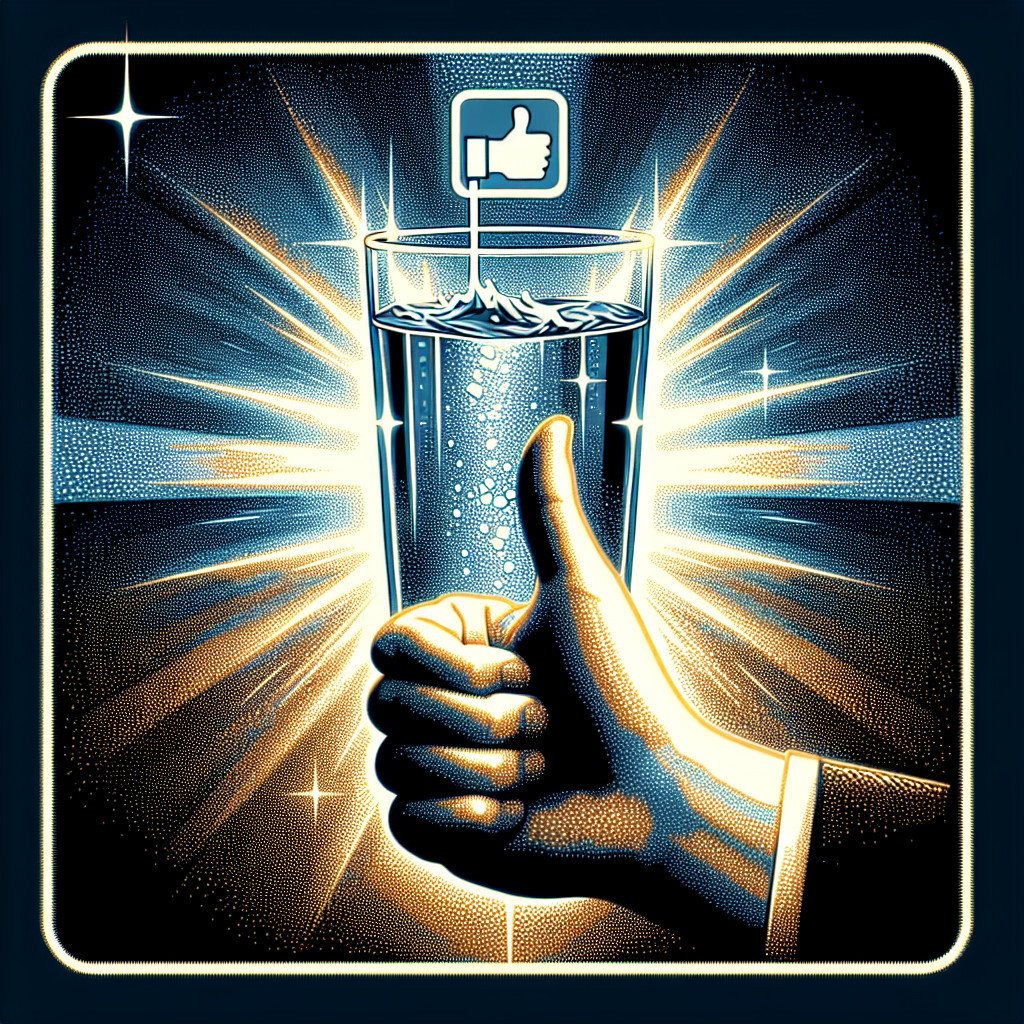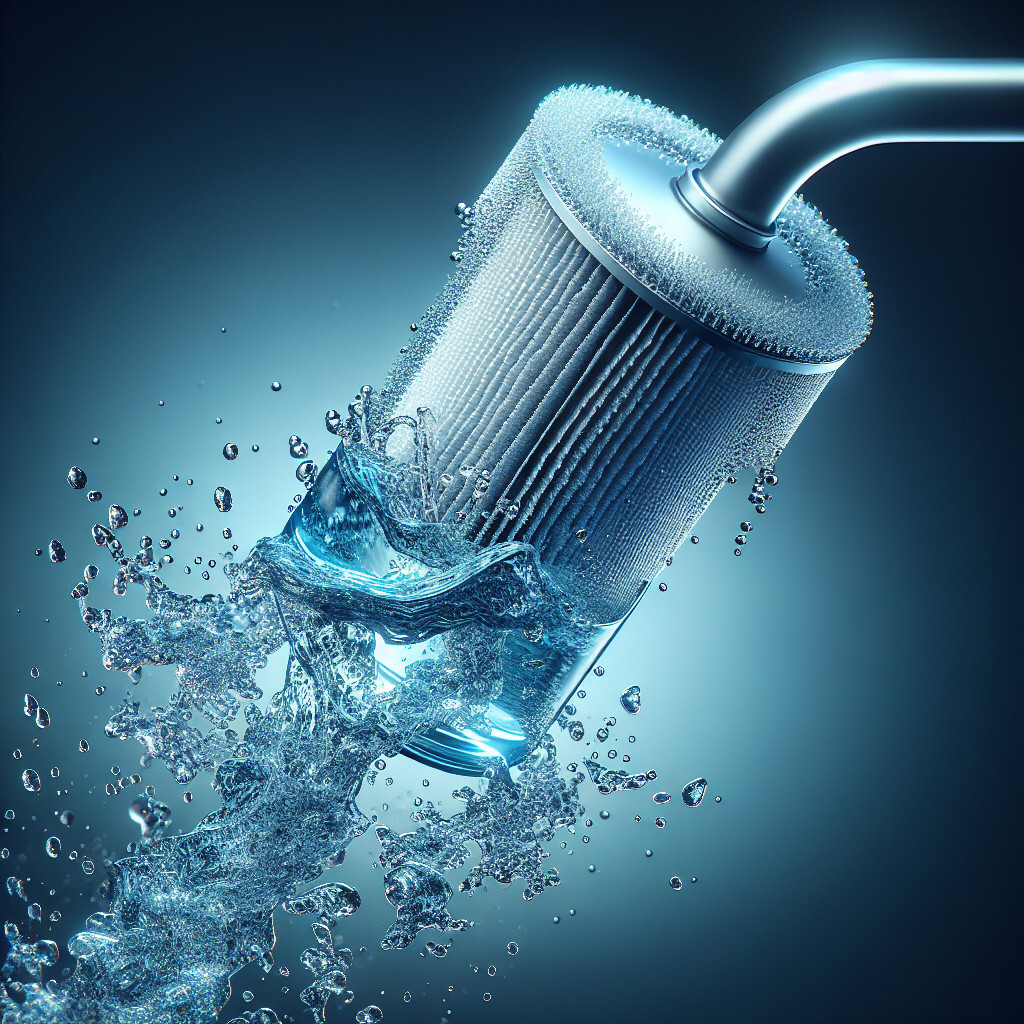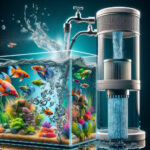-
Table of Contents
“Filtered Tap Water: Pure, Safe, and Refreshing for Your Health!”
Introduction

Filtered tap water is a common choice for many households due to its improved taste, odor, and overall quality. It involves the process of removing impurities and potential contaminants such as chlorine, lead, bacteria, and pesticides from regular tap water, making it safer for consumption. While tap water in many regions is generally safe to drink, filtered tap water offers an extra layer of protection against possible pollutants, contributing to better health and wellbeing.
Exploring the Health Benefits of Filtered Tap Water
Filtered tap water is a topic that has been gaining increasing attention in recent years. As concerns about the quality of our drinking water grow, many people are turning to water filters as a way to ensure they are consuming the cleanest, healthiest water possible. But is filtered tap water really good for you? The answer, according to numerous studies and health experts, is a resounding yes.
The primary reason for this is that water filters remove potentially harmful contaminants from tap water. These can include heavy metals like lead and mercury, bacteria, viruses, and other microscopic organisms that can cause illness. In addition, filters can also remove chemicals such as chlorine and fluoride, which are often added to tap water during the treatment process but can have negative health effects in large amounts. By removing these contaminants, filtered tap water can help to reduce the risk of various health problems, including gastrointestinal diseases, reproductive issues, and neurological disorders.
Moreover, filtered tap water is not only healthier but also tastes better. The removal of contaminants and chemicals can significantly improve the taste and odor of tap water, making it more enjoyable to drink. This can encourage people to drink more water, which is essential for maintaining good health. Adequate hydration can aid in digestion, help to regulate body temperature, and support the function of vital organs like the heart and kidneys.
Another significant benefit of filtered tap water is its environmental impact. Bottled water, while convenient, generates a significant amount of plastic waste that can take hundreds of years to decompose. By using a water filter and a reusable bottle, you can help to reduce this waste and contribute to a healthier planet. Furthermore, the production and transportation of bottled water use a considerable amount of energy and contribute to greenhouse gas emissions. In contrast, tap water has a much lower carbon footprint, especially when it is filtered at home.
However, it’s important to note that not all water filters are created equal. Different types of filters can remove different contaminants, and some may be more effective than others. For example, activated carbon filters are excellent at removing chlorine and improving taste, but they may not be as effective at removing heavy metals or bacteria. On the other hand, reverse osmosis filters can remove a wide range of contaminants, but they also remove beneficial minerals from the water and can be more expensive to install and maintain.
Therefore, when choosing a water filter, it’s essential to consider what contaminants are present in your tap water and what your specific health needs are. You may also want to consider factors such as the cost of the filter, its maintenance requirements, and its impact on water flow rate.
In conclusion, filtered tap water offers numerous health benefits, from reducing the risk of illness to improving hydration. It also has a lower environmental impact than bottled water. However, the effectiveness of a water filter can vary depending on its type and the quality of your tap water. Therefore, it’s important to do your research and choose a filter that meets your specific needs. With the right filter, you can enjoy clean, healthy, and tasty water straight from your tap.
The Environmental Impact of Choosing Filtered Tap Water Over Bottled Water
The environmental impact of our daily choices is a topic of increasing importance in today’s society. One such choice that has significant environmental implications is our preference for drinking water. The decision between consuming filtered tap water and bottled water may seem trivial, but it carries substantial environmental consequences.
The production of bottled water involves a complex process that begins with the extraction of crude oil. This oil is then refined and transformed into plastic, which is subsequently molded into bottles. The entire process is energy-intensive and contributes significantly to greenhouse gas emissions. Moreover, the transportation of bottled water from factories to retail outlets further exacerbates its carbon footprint.
In contrast, tap water is sourced locally and requires significantly less energy to process and distribute. When filtered, tap water can provide a quality of drinking water that is comparable to, if not better than, bottled water. The filtration process removes impurities and potential contaminants, ensuring that the water is safe for consumption.
The use of water filters also reduces the need for plastic bottles, which are a major source of pollution. It is estimated that only about 30% of plastic bottles are recycled, with the rest ending up in landfills or the natural environment. These discarded bottles take hundreds of years to decompose, during which time they release harmful chemicals into the soil and water.
On the other hand, water filters are typically made of recyclable materials and have a long lifespan. A single filter can purify hundreds of gallons of water before it needs to be replaced. This not only reduces waste but also saves consumers money in the long run.
Furthermore, the reliance on bottled water can strain water resources in areas where it is sourced. Many bottled water companies extract water from underground aquifers, which can lead to water scarcity in these regions. In contrast, tap water is usually sourced from local reservoirs or rivers, which are replenished through the natural water cycle.
However, it is important to note that the quality of tap water can vary depending on the location. In some areas, tap water may contain high levels of certain contaminants, making it unsuitable for direct consumption. In such cases, a high-quality water filter can be used to remove these contaminants and ensure the safety of the water.
In conclusion, choosing filtered tap water over bottled water can have a significant positive impact on the environment. It reduces energy consumption, decreases waste, and promotes the sustainable use of water resources. While the quality of tap water can vary, the use of a good water filter can ensure that it is safe and healthy to drink. Therefore, by opting for filtered tap water, we can not only quench our thirst but also contribute to the preservation of our planet.
Understanding the Process and Effectiveness of Tap Water Filtration
Tap water filtration is a process that has been adopted by many households worldwide, with the primary aim of improving the quality of drinking water. The question that often arises is whether filtered tap water is good. To answer this question, it is essential to understand the process and effectiveness of tap water filtration.
The filtration process begins at the municipal level, where water is treated to remove impurities and harmful substances. This water is then transported through pipes to our homes. However, despite this initial treatment, tap water may still contain traces of contaminants such as chlorine, lead, and other heavy metals. This is where home water filtration systems come into play. These systems are designed to further purify tap water, making it safer for consumption.
There are several types of water filtration systems available, each employing a different method to remove contaminants. Activated carbon filters, for instance, are effective in removing organic compounds and chlorine. Reverse osmosis systems, on the other hand, are capable of eliminating a broader range of contaminants, including heavy metals and certain types of bacteria. It’s important to note that no single filtration method can remove all types of contaminants, which is why many filtration systems combine different technologies to enhance their effectiveness.
The effectiveness of a water filtration system largely depends on its type and quality. High-quality systems can significantly reduce the levels of harmful substances in tap water, making it safer to drink. However, it’s crucial to remember that these systems are not foolproof. Some contaminants may still slip through, especially if the system is not properly maintained. Regular filter changes and system checks are necessary to ensure optimal performance.
So, is filtered tap water good? The answer is generally yes. Filtered tap water is typically safer to drink than unfiltered tap water, as it contains fewer contaminants. Moreover, it often tastes better, as the filtration process can remove substances that give tap water an unpleasant taste or odor. However, the quality of filtered tap water can vary depending on the filtration system used and how well it is maintained.
While filtered tap water is generally safe for consumption, it’s important to remember that it’s not completely free of contaminants. Some substances, such as certain types of bacteria and viruses, may not be entirely removed by the filtration process. Therefore, individuals with weakened immune systems or specific health conditions may need to take additional precautions, such as boiling their water before drinking.
In conclusion, filtered tap water is a good option for those seeking to improve the quality of their drinking water. It is typically safer and tastier than unfiltered tap water, thanks to the removal of many harmful substances. However, the effectiveness of tap water filtration can vary, and regular maintenance is necessary to ensure the best results. As with any health-related decision, it’s always wise to do your research and consult with a professional if you have any concerns.
Filtered Tap Water vs. Bottled Water: A Comparative Analysis
Filtered tap water and bottled water are two of the most common sources of drinking water. While both are deemed safe for consumption, there are significant differences between the two that can influence a consumer’s choice. This article aims to provide a comparative analysis of filtered tap water and bottled water, focusing on their safety, taste, cost, and environmental impact.
Safety is a primary concern when it comes to drinking water. Tap water is regulated by the Environmental Protection Agency (EPA), which sets stringent standards for water quality. However, tap water can still contain trace amounts of contaminants, such as lead, chlorine, and pesticides. To mitigate this risk, many households use water filters. These devices remove most contaminants, making filtered tap water a safe option. On the other hand, bottled water is regulated by the Food and Drug Administration (FDA), which also imposes strict standards for water quality. However, it’s worth noting that the FDA’s regulations are not as stringent as the EPA’s. Therefore, while bottled water is generally safe, it may not be as pure as filtered tap water.
Taste is another factor that can influence a consumer’s choice. The taste of tap water can vary depending on the source and the types of minerals present. Water filters can improve the taste by removing chlorine and other chemicals. Bottled water, meanwhile, often undergoes a purification process that removes most minerals, resulting in a neutral taste. However, some brands add minerals back into the water to enhance the flavor. Therefore, the taste of both filtered tap water and bottled water can be subjective and largely depends on individual preferences.
Cost is a significant factor to consider. Filtered tap water is considerably cheaper than bottled water. While there is an initial cost for the water filter, the ongoing cost of replacing the filter is still much lower than the cost of buying bottled water regularly. Moreover, tap water is virtually free, making filtered tap water a cost-effective choice for most households. Conversely, bottled water can be expensive, especially if consumed regularly. The cost not only includes the water itself but also the packaging and transportation.
Lastly, the environmental impact of both sources of water cannot be overlooked. Filtered tap water has a lower environmental footprint as it requires less energy to produce and does not generate plastic waste. Water filters are also generally recyclable. On the contrary, bottled water has a significant environmental impact. The production and transportation of bottled water consume a considerable amount of energy, contributing to greenhouse gas emissions. Moreover, plastic bottles often end up in landfills or oceans, causing pollution and harm to wildlife.
In conclusion, filtered tap water appears to have several advantages over bottled water. It is generally safer, can taste better depending on individual preferences, is more cost-effective, and has a lower environmental impact. However, the choice between filtered tap water and bottled water ultimately depends on individual circumstances and preferences. It is recommended that consumers consider all these factors before making a decision.
Q&A
1. Question: Is filtered tap water safe to drink?
Answer: Yes, filtered tap water is generally safe to drink as the filtration process removes contaminants and harmful substances.
2. Question: Does filtered tap water retain essential minerals?
Answer: Yes, most water filters allow beneficial minerals like calcium and magnesium to pass through, retaining them in the water.
3. Question: Can drinking filtered tap water improve health?
Answer: Drinking filtered tap water can potentially improve health by reducing exposure to harmful contaminants often found in unfiltered tap water.
4. Question: Is filtered tap water better than bottled water?
Answer: Filtered tap water can be a better choice than bottled water because it reduces plastic waste, is cost-effective, and the quality is often comparable if not better.
Conclusion
Filtered tap water is good as it removes harmful contaminants, improves taste and odor, and provides a cost-effective and environmentally friendly alternative to bottled water.






